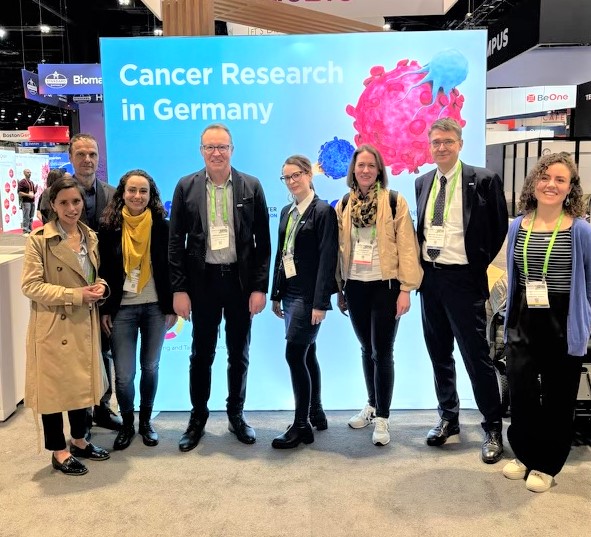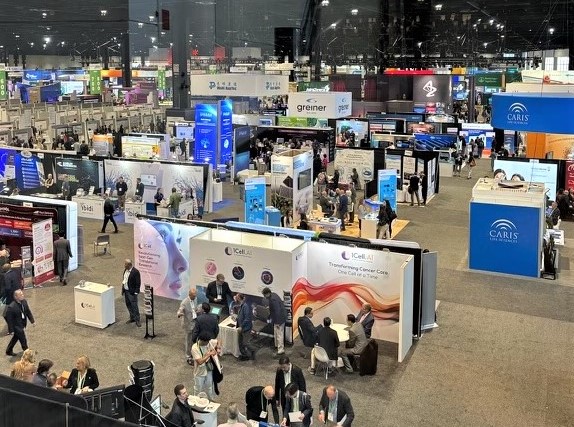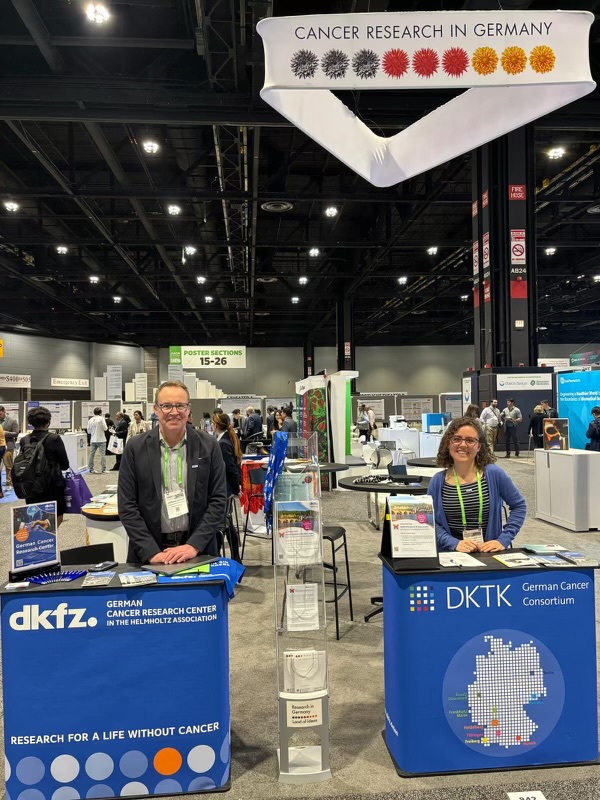Cancer Research in Germany: Joint academic fair appearance at the AACR annual conference
The "Cancer Research in Germany" team
© Private
The annual meeting of the American Association for Cancer Research (AACR), held at the end of April, brought thousands of scientists working in cancer research and just as many representatives of the life sciences or pharmaceutical companies to Chicago to discuss the most important topics in oncology at the moment. What role can therapies with checkpoint inhibitors play? Why do cancer cells become resistant to treatment? How can we better combat metastases? How can radiopharmaceutical therapies be improved? Should therapies not be treated based on their mutations and not the tissue type? The research institutions and funding organizations represented at the “Cancer Research in Germany” booth attempted to provide answers to these and many other questions.
Under the auspices of the North American office of the German Research Foundation (DFG), the German Cancer Research Center (DKFZ), the Cluster of Excellence “Image-guided and Functionally Instructed Tumor Therapies” (iFIT), the National Center for Tumor Diseases (NCT) and the German Consortium for Translational Cancer Research represented important players in oncological research and development in Germany. The interplay between funding organizations such as the DFG, Alexander von Humboldt Foundation (AvH), German Academic Exchange Service (DAAD) and European Research Council (ERC) and these German research and translational institutions was presented at the spacious “Cancer in Germany” booth.
In this way, Germany was successfully promoted as an internationally attractive location for modern cancer research and the interest of internationally mobile scientific talent in contributing to Germany’s “Decade Against Cancer” campaign was strengthened.


